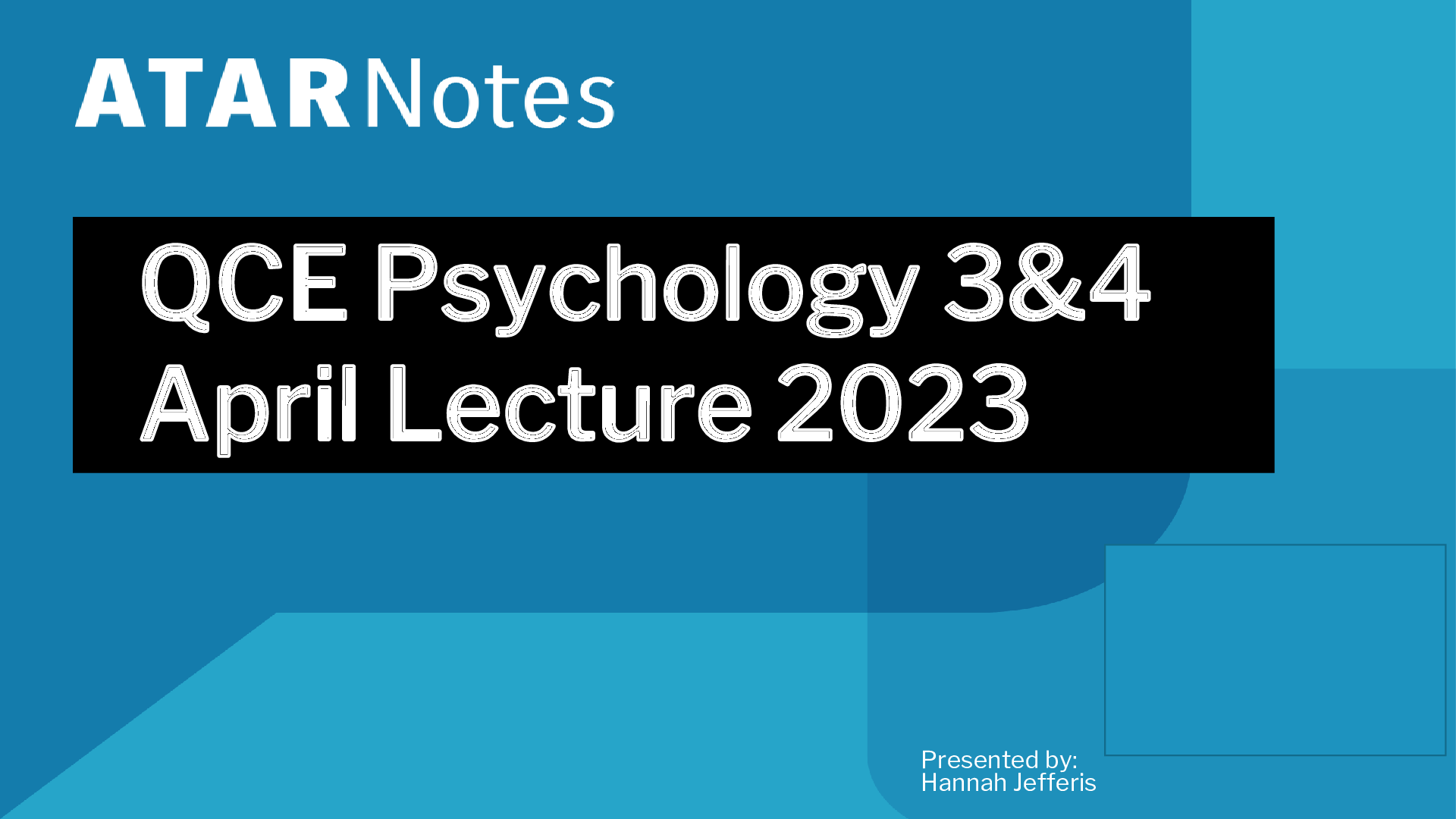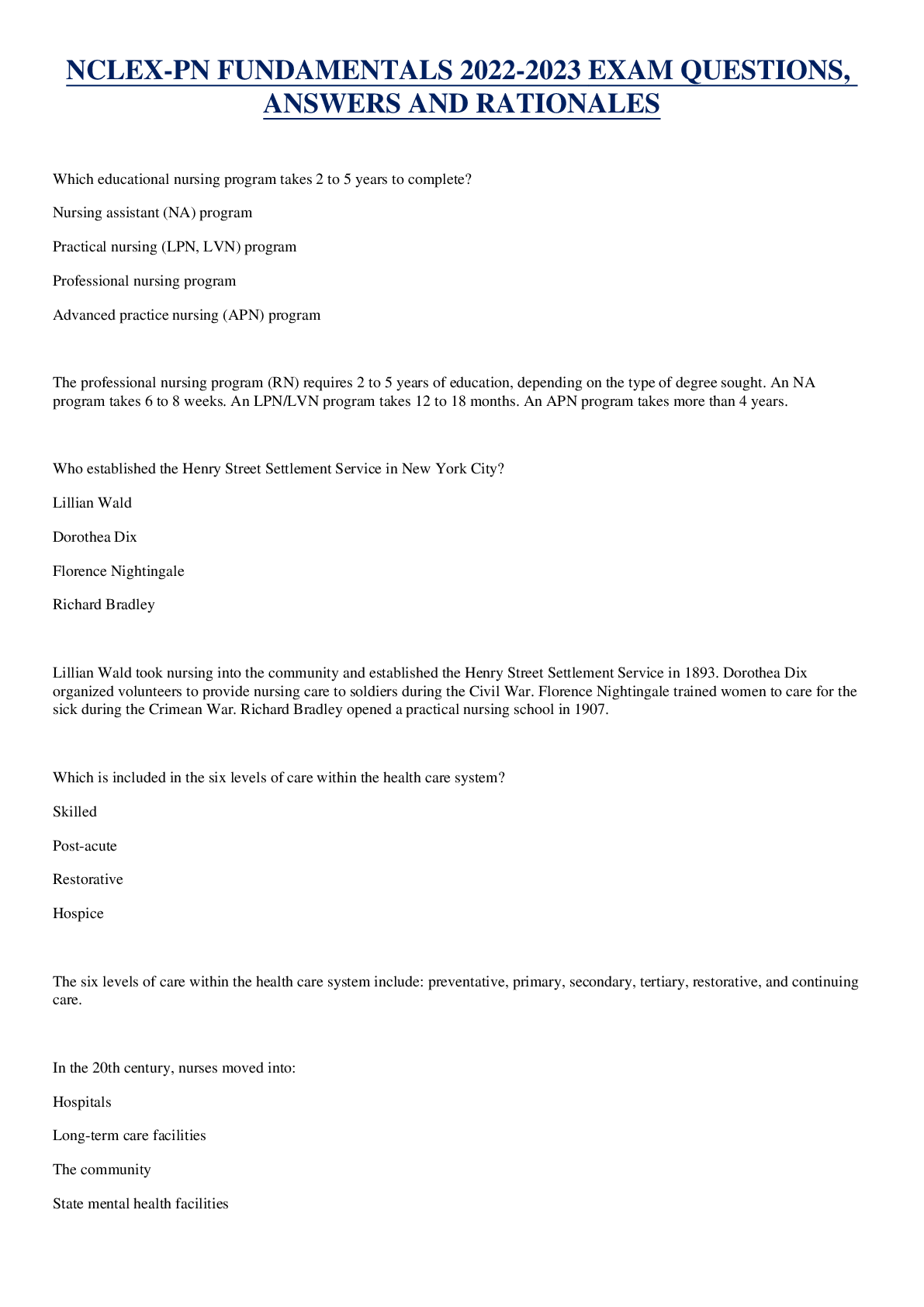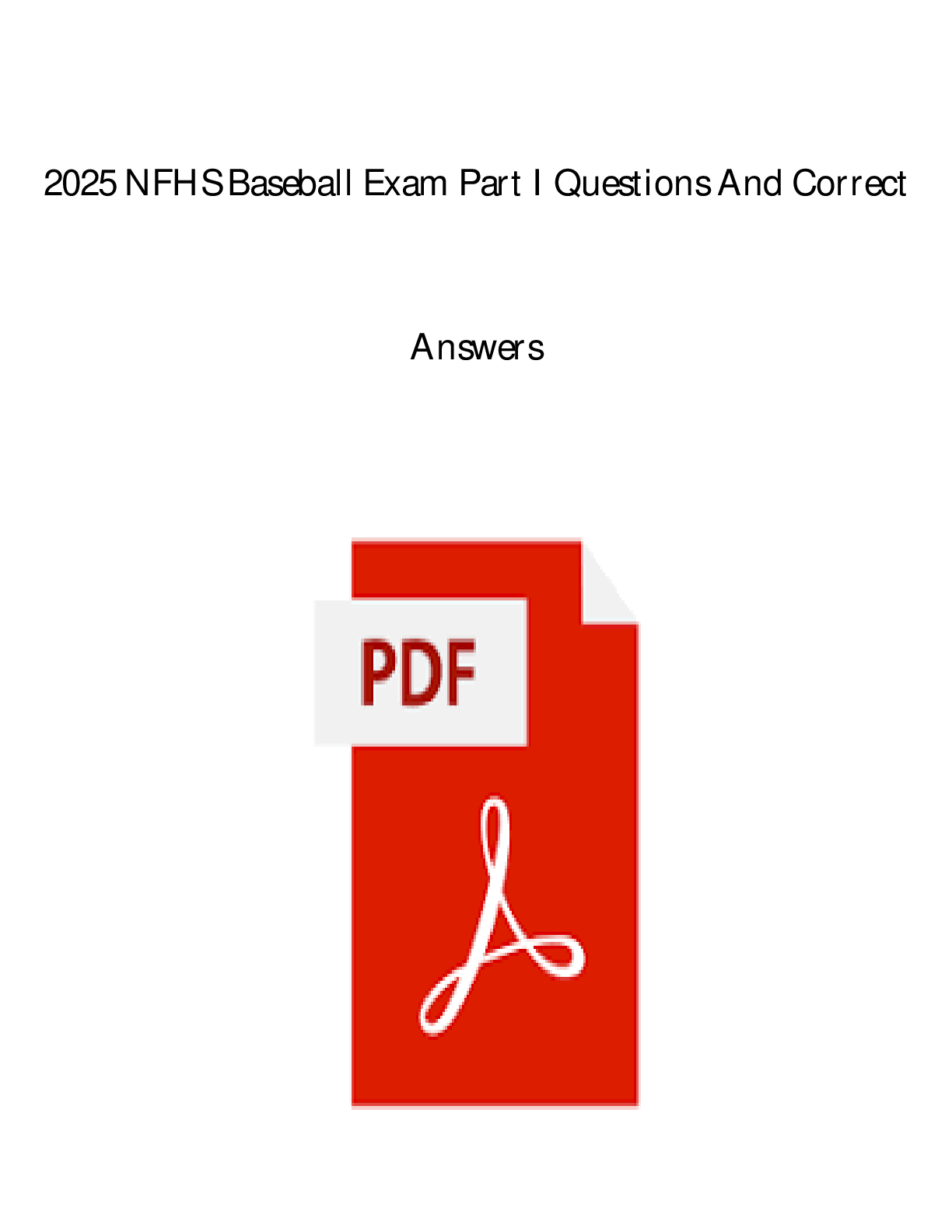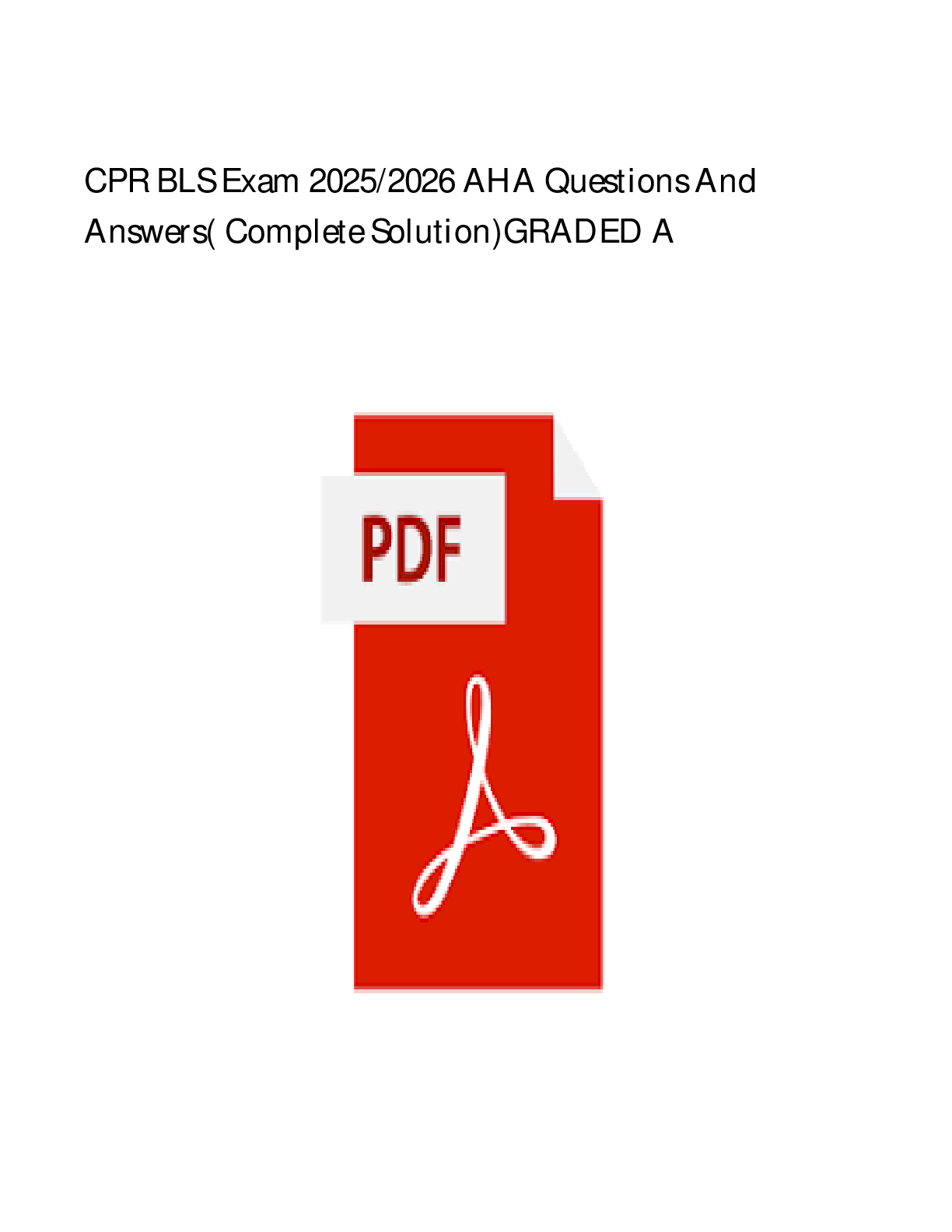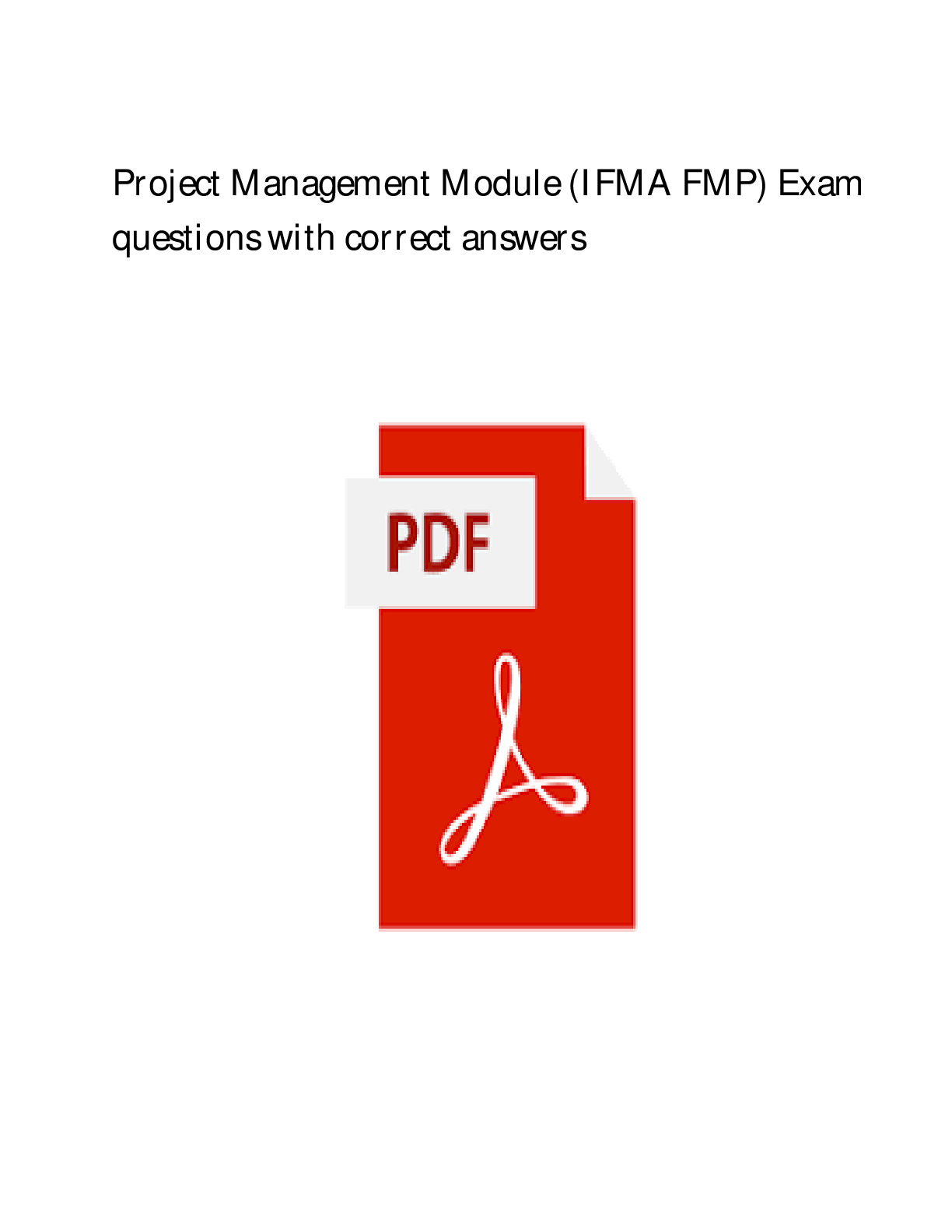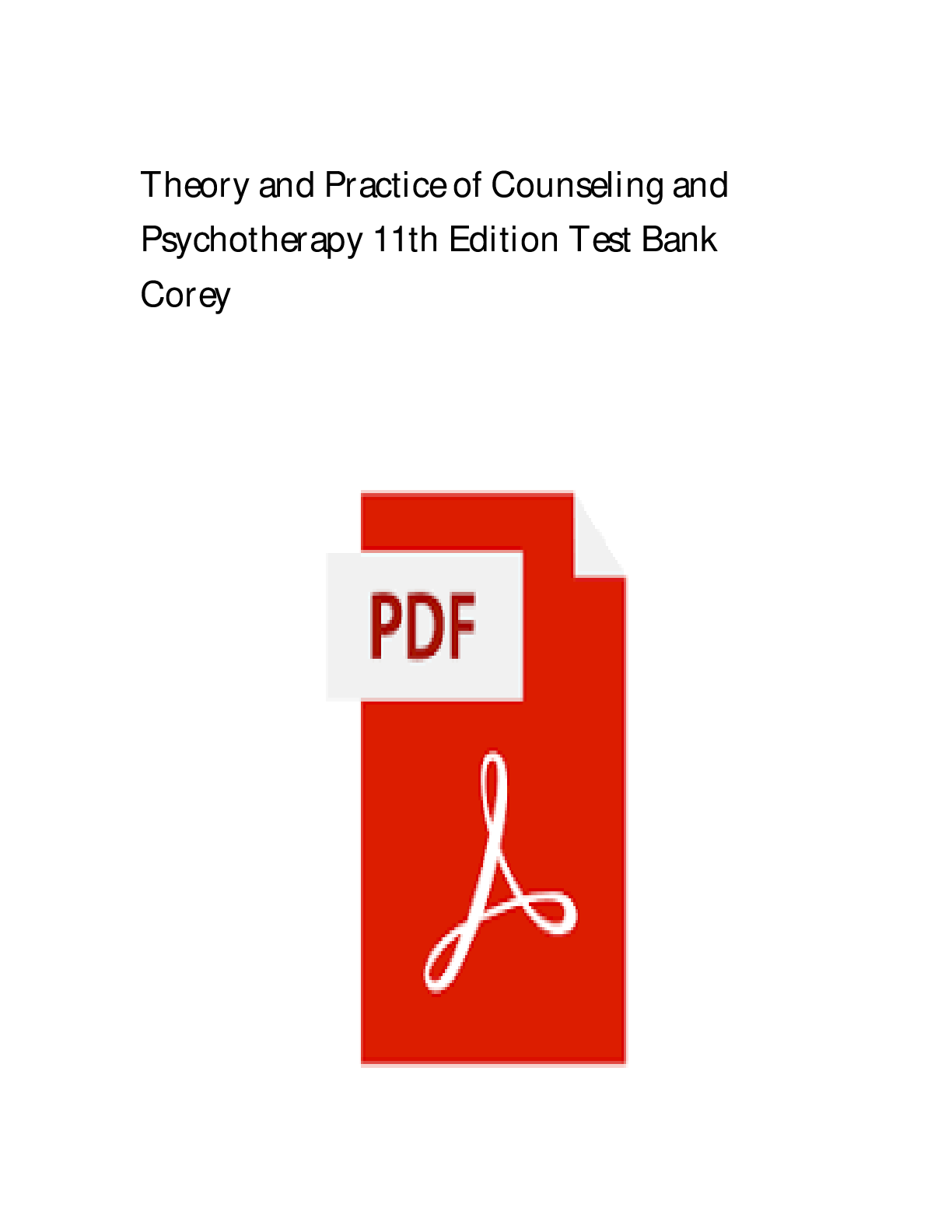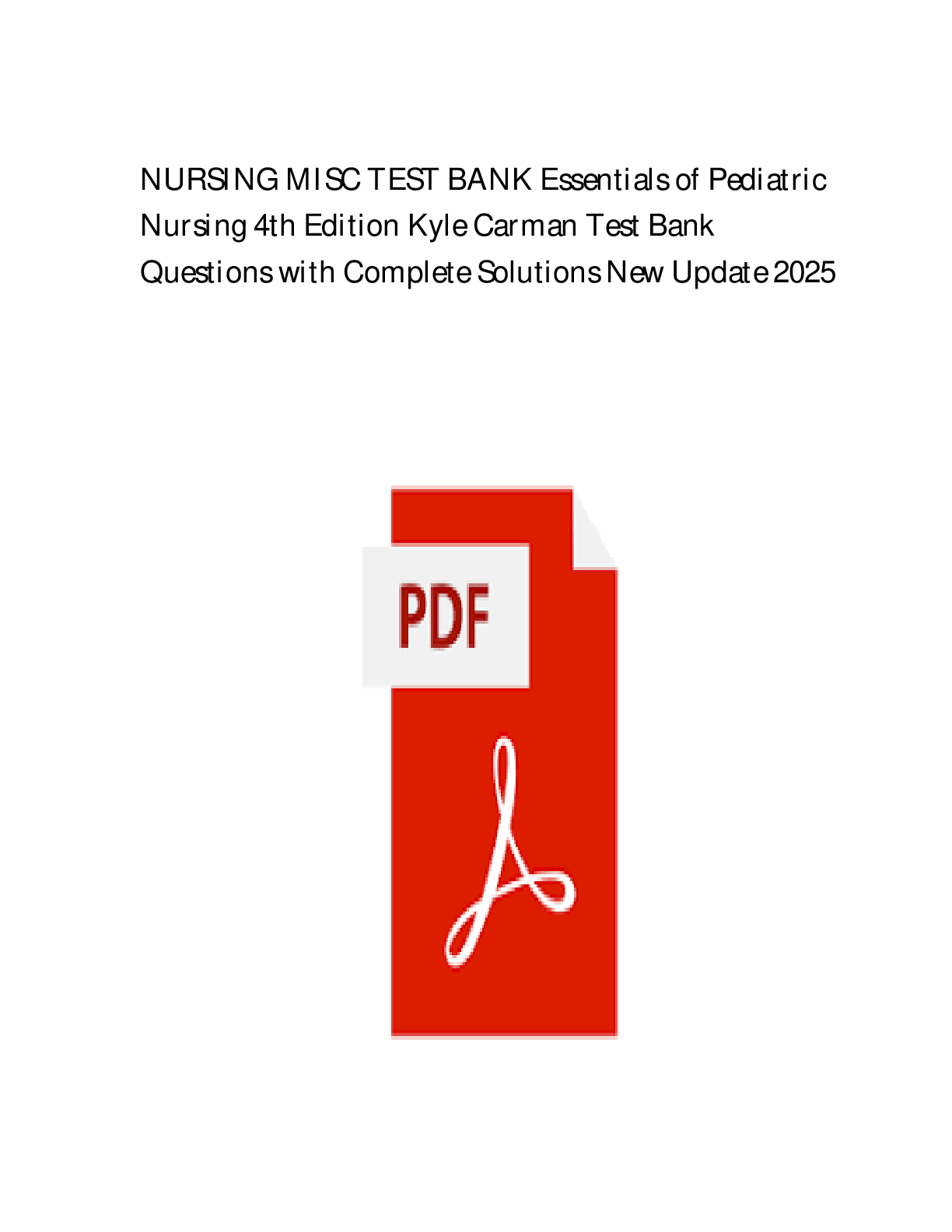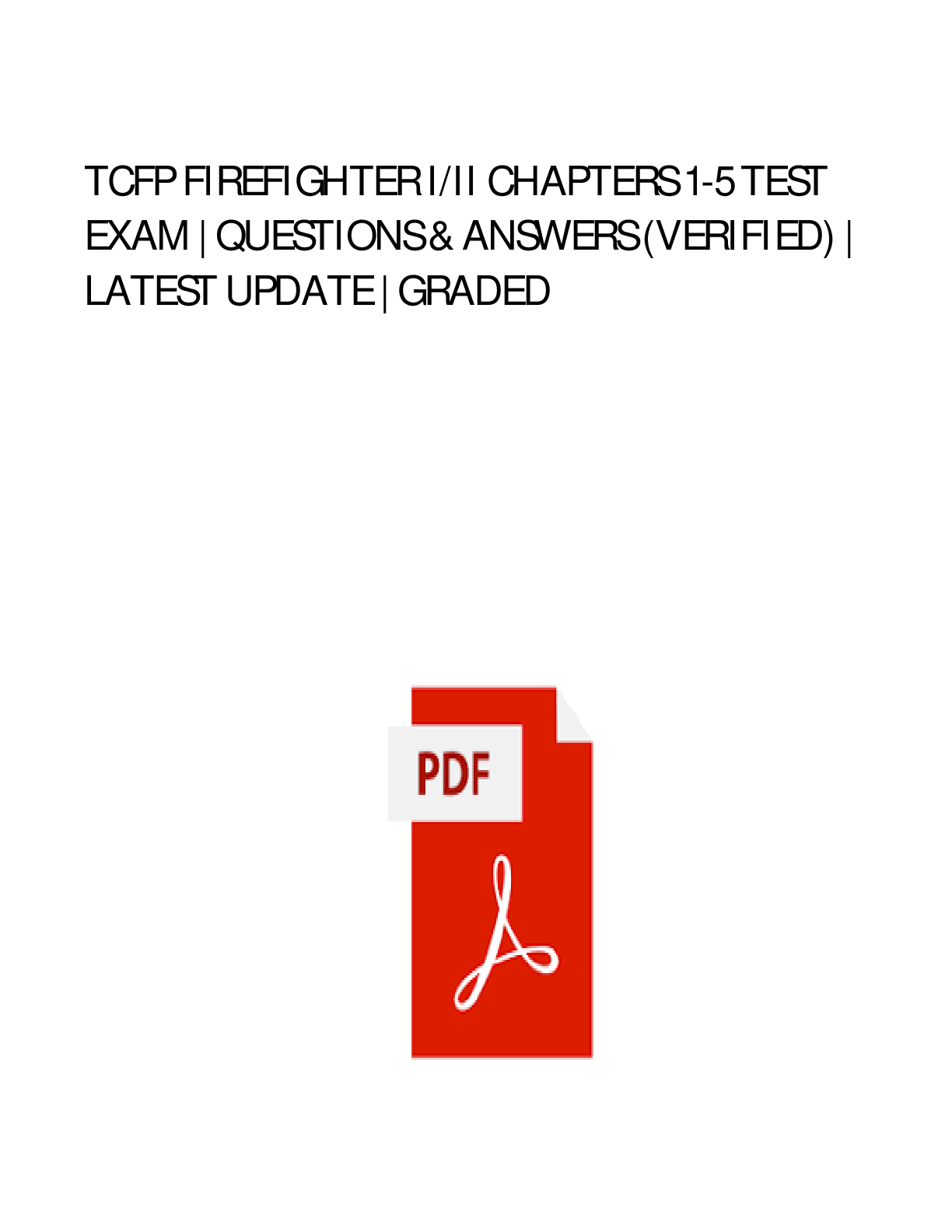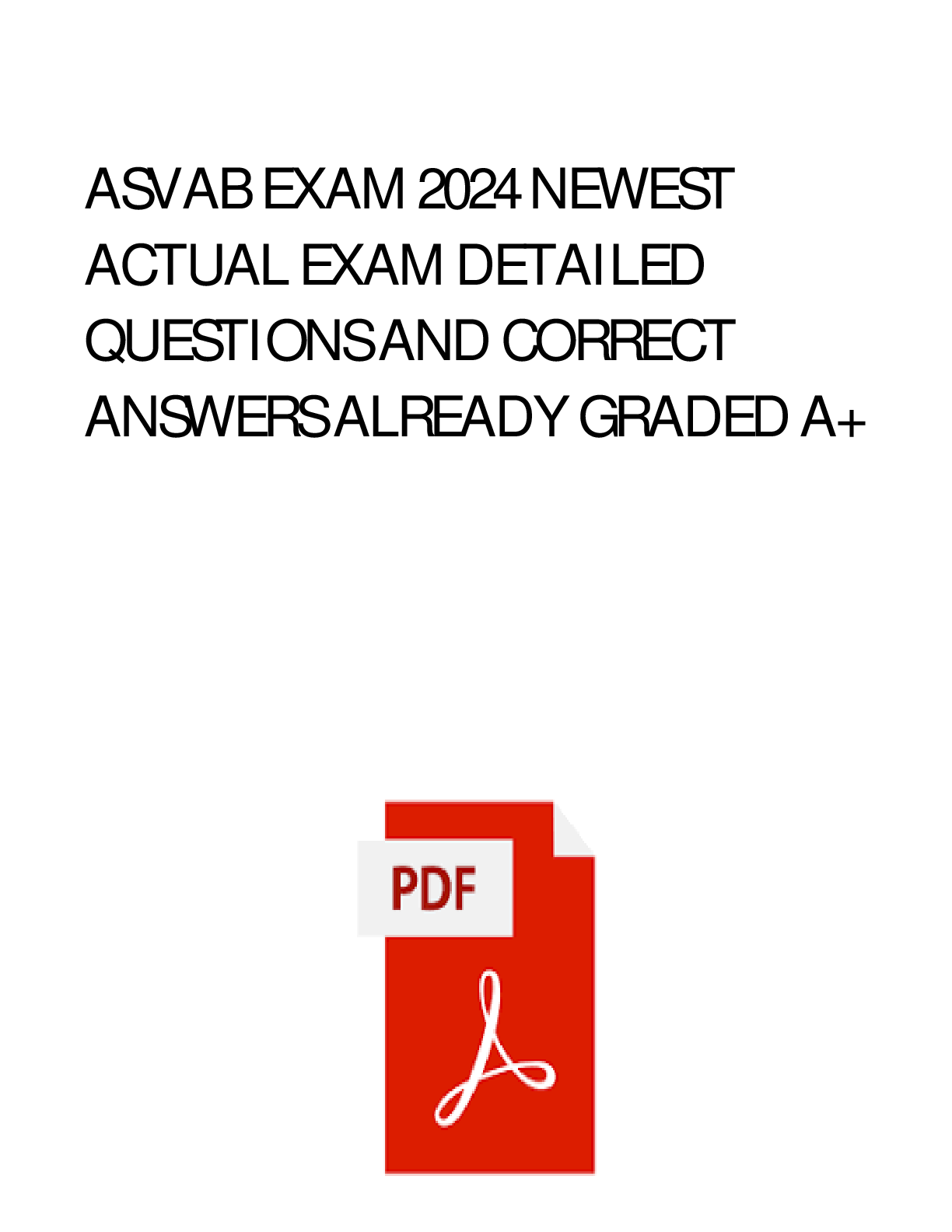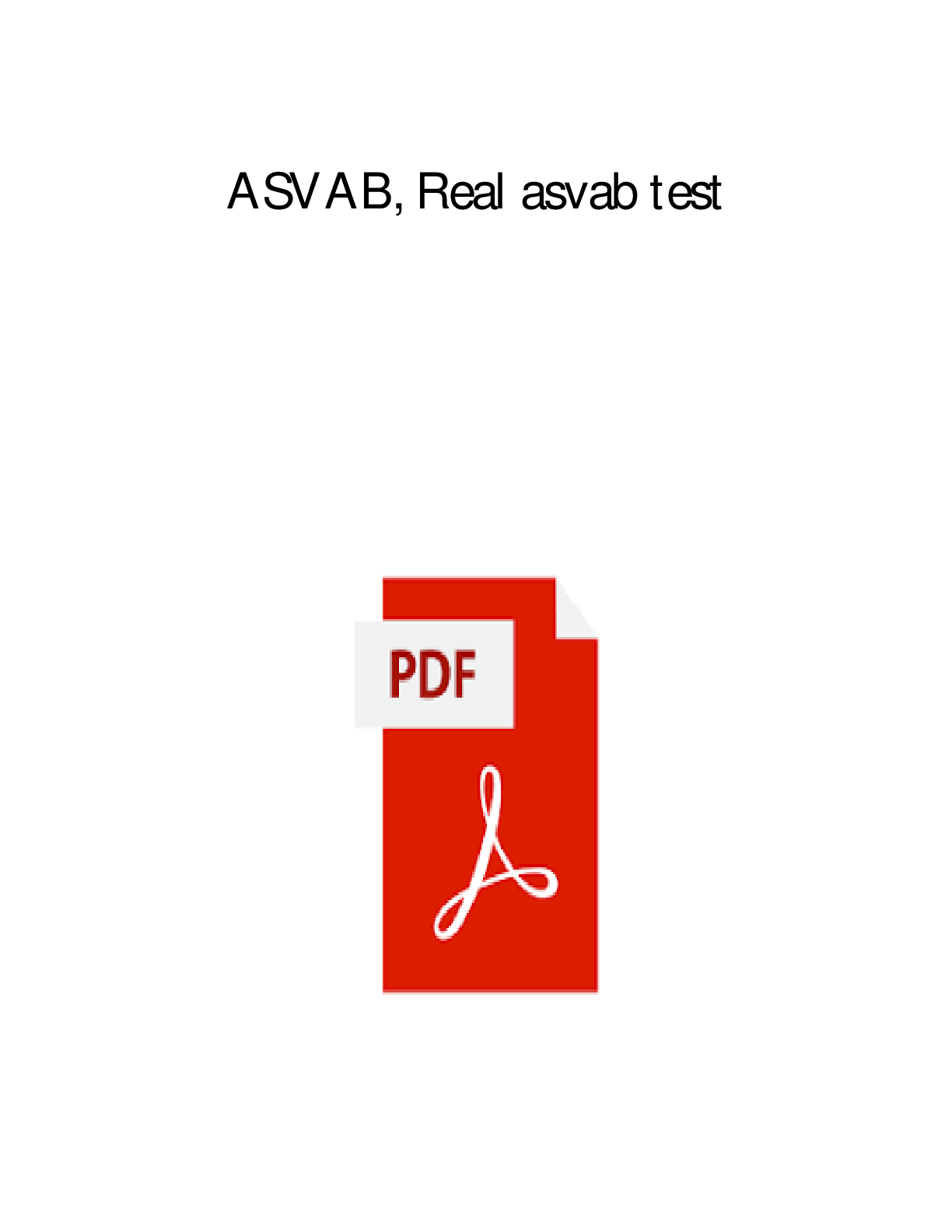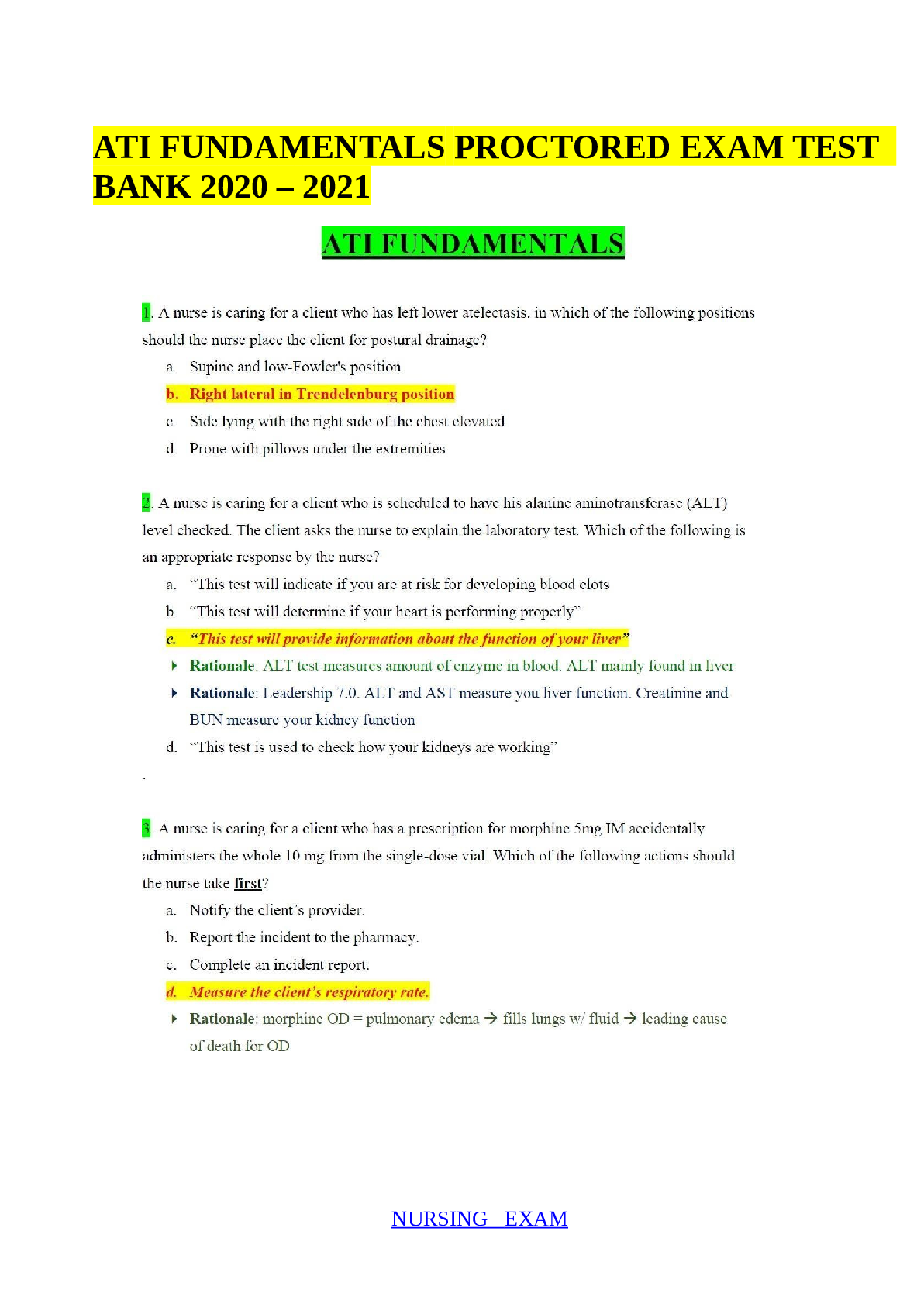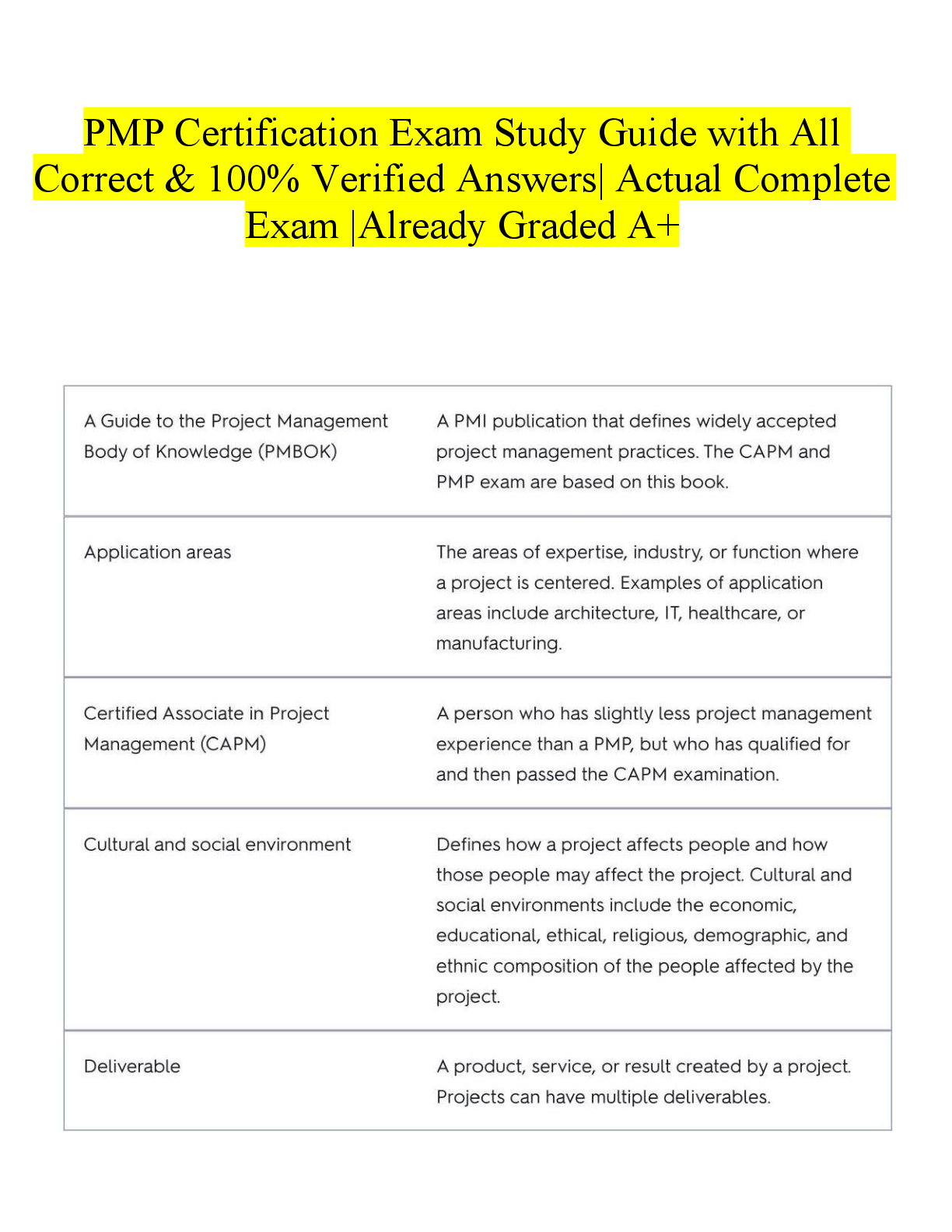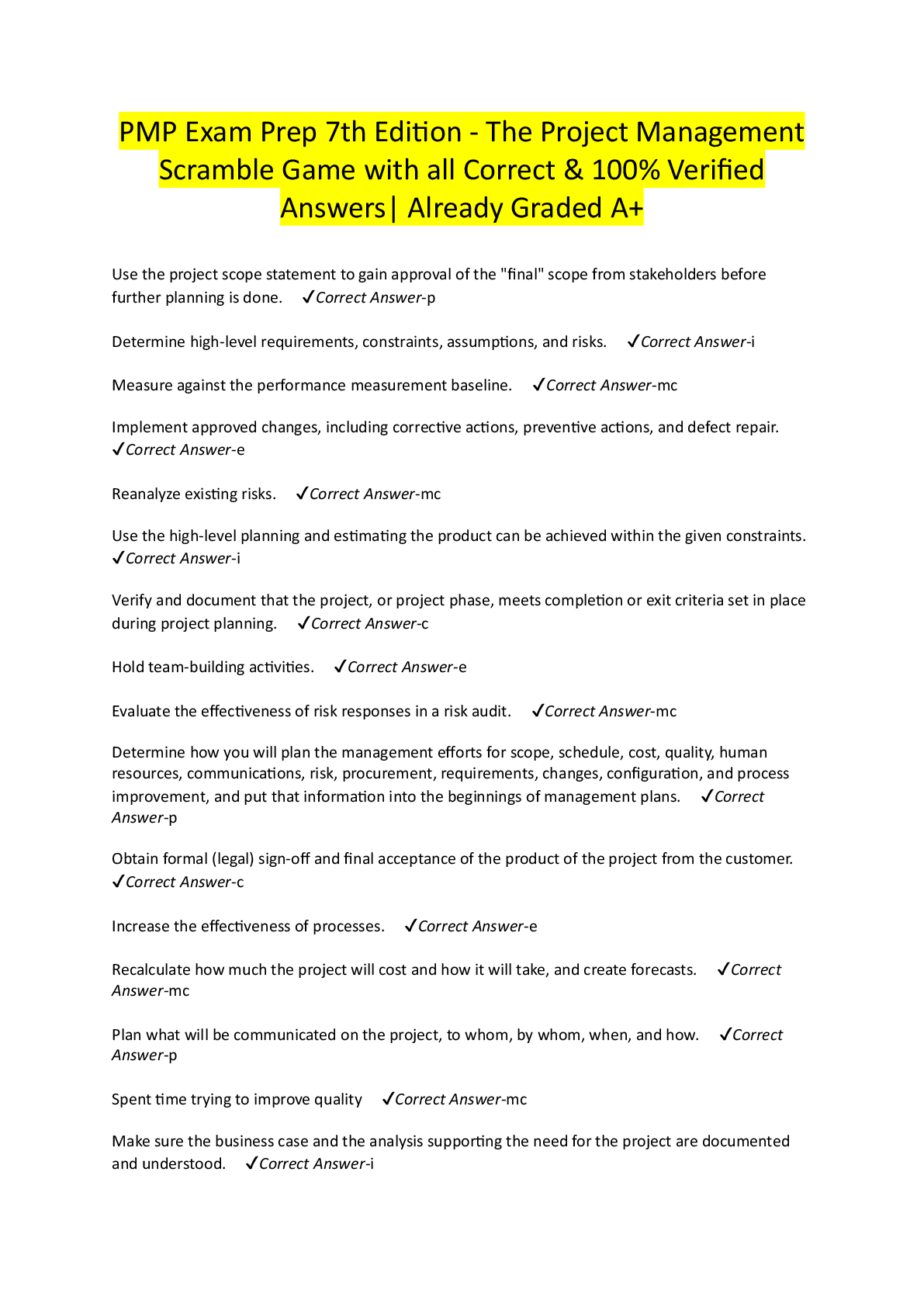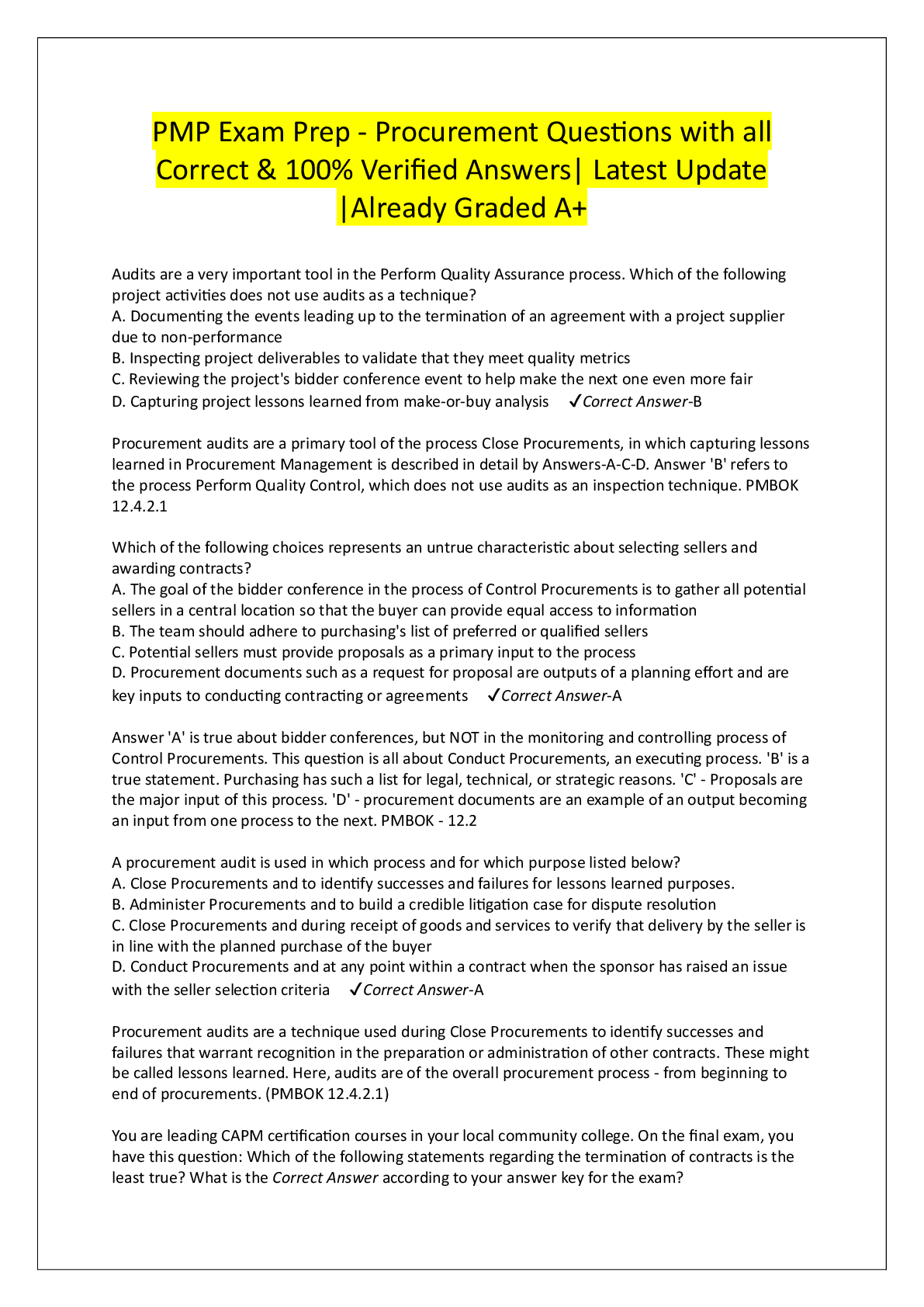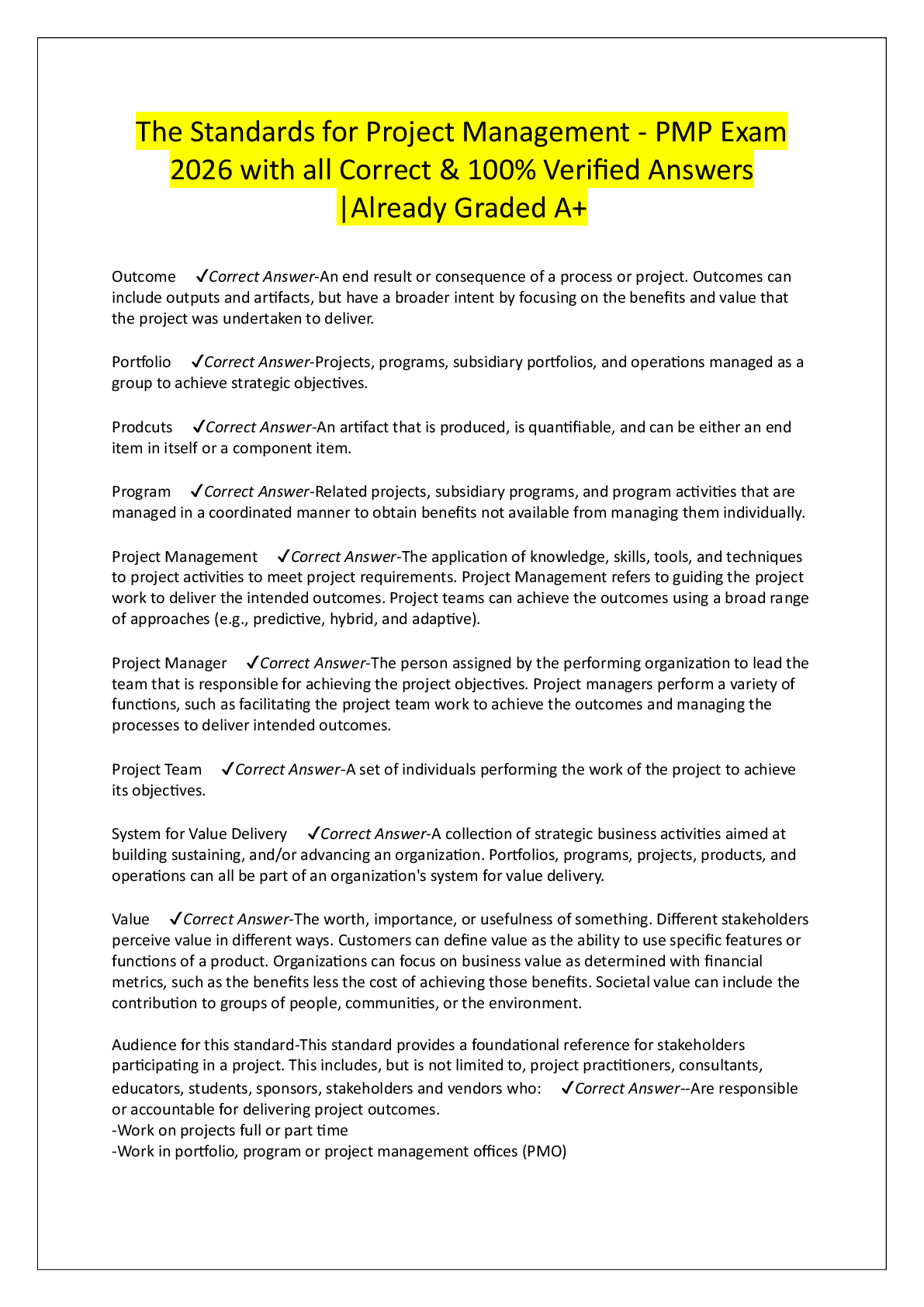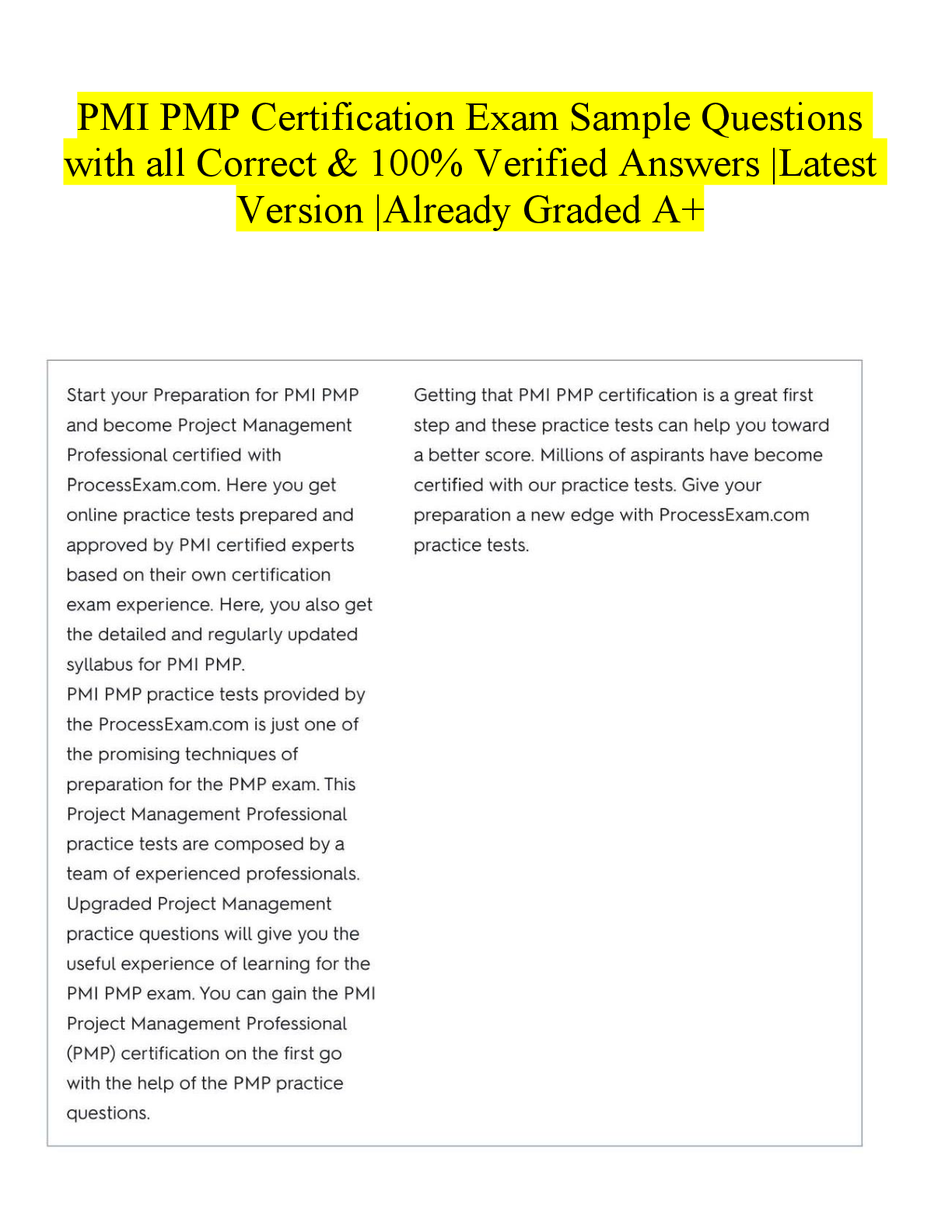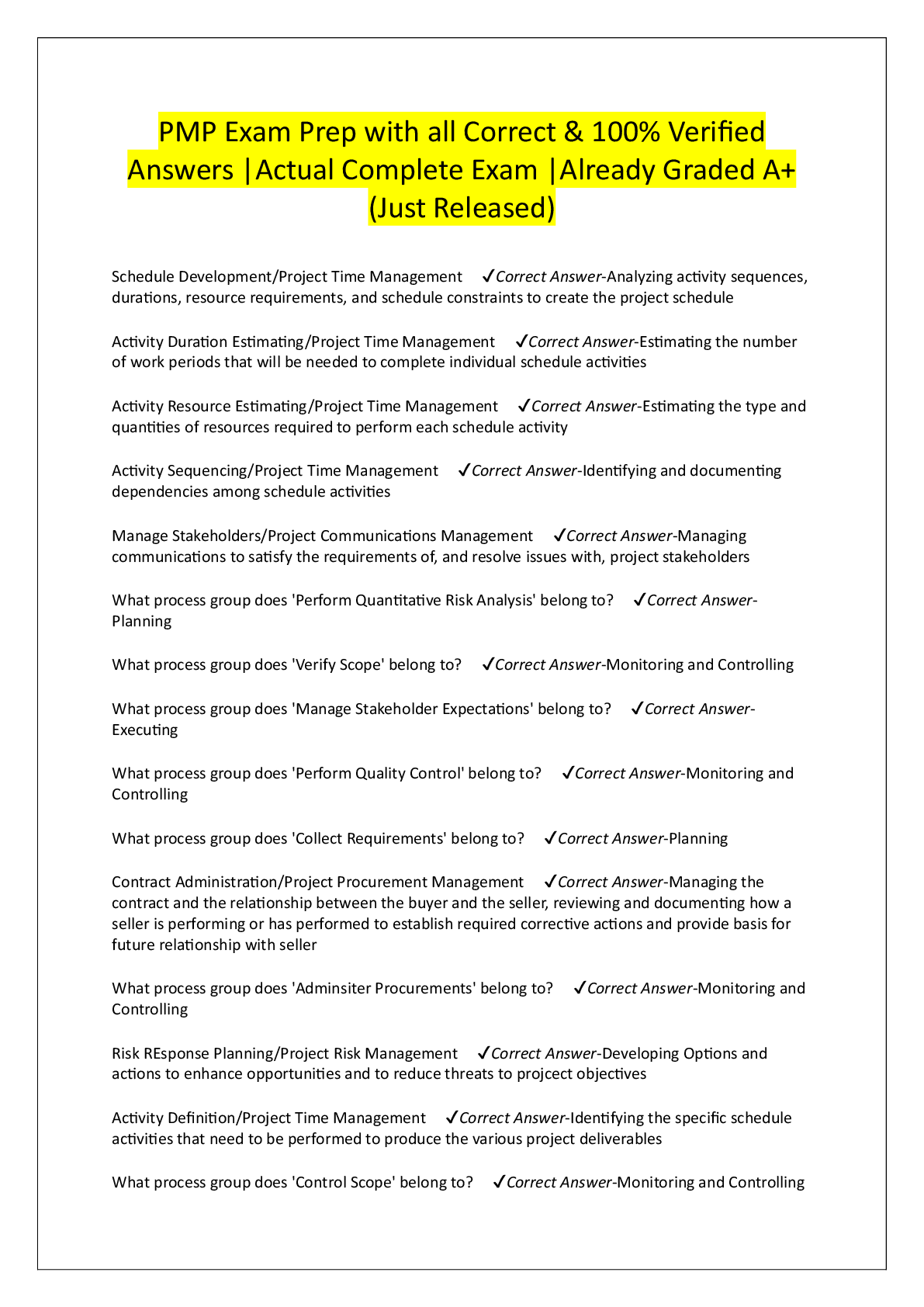WGU D094 133 Questions And Answers A+ Graded
Document Content and Description Below
WGU D094/133 Questions And Answers/A+ Graded Maslow's Hierarchy of Needs - Correct Answer -Popular motivational theory proposed by Abraham Maslow in 1943. Maslow's Hierarchy of Needs Main Idea - Corre
...
ct Answer -Individuals must satisfy a basic series of needs before they can reach their potential. Maslow's Deficiency Needs - Correct Answer -Physiological, Safety, Love and Belonging, and Esteem Maslow's Growth Needs - Correct Answer -Cognitive, Aesthetic, SelfActualization, Transcendence Maslow's Physiological Need - Correct Answer -Biological needs for survival, food, water, shelter Maslow's Safety Need - Correct Answer -Protection from the elements, law and order, financial security, and freedom from fear. Maslow's Love and Belonging Need - Correct Answer -Need for interpersonal relationships - friendships, intimacy, being part of a group. Maslow's Esteem Need - Correct Answer -Self-respect, respect from others, achievement, status, and prestige. Maslow's Cognitive Need - Correct Answer -Curiosity, knowledge, and intellectual exploration Maslow's Aesthetic Need - Correct Answer -Need focuses on the search for and expression of beauty and balance. Maslow's Self-Actualization Need - Correct Answer -Personal growth and fulfillment and the realization of one's personal potential as a human being. Maslow's Transcendence Need - Correct Answer -Meeting spiritual needs or helping others achieve self-actualization. Arnold Gesell - Correct Answer -First theorist to observe and document stages of physical development. Gesell's Maturational Theory - Correct Answer -Child's growth & development are influenced by both their environment and genes in sequential order Infancy - Correct Answer -The stage of development that begins at birth and lasts between 18 and 24 months. Dozens of motor skills are added. Early Childhood - Correct Answer -The stage of development from 2 - 6 years old. Improvements occur in both fine and gross motor skills. Middle Childhood - Correct Answer -The stage of development from 6 - 10 years old. Slow but steady gains in weight and height. Adolescence - Correct Answer -The stage of development from 10 - 18 years old. Weight and height increase rapidly and puberty begins. Jean Piaget - Correct Answer -Swiss psychologist known for his Theory of Cognitive Development. Piaget's Theory of Cognitive Development - Correct Answer -Theory that suggests children move through four different stages of development. Sensorimotor, Preoperational, Concrete Operational, and Formal Operational. Sensorimotor Stage - Correct Answer -Stage of development from birth to 2 years. Infants and toddlers acquire knowledge through sensory experiences and manipulating objects. Object Permanence - Correct Answer -The understanding that objects continue to exist even when they cannot be seen. Major development of sensorimotor stage. Preoperational Stage - Correct Answer -Stage of development from 2 to 7 years. Kids learn through pretend play. Egocentric and struggle to see others perspective. Concrete Operational Stage - Correct Answer -Stage of development from 7 to 11 years. Logical thought begins, and they understand the idea of conservation. Formal Operational Stage - Correct Answer -Stage of development for 12 years and up. Abstract thought begins. Higher order thinking and ability to systematically plan for future. Schema - Correct Answer -Categories of knowledge that help us to interpret and understand the world. An organized pattern of behavior or thought. Assimilation - Correct Answer -Process of using or transforming the environment so that it can be placed in preexisting cognitive structures (schema). Accomodation - Correct Answer -Process of changing cognitive structures (schema) in order to accept something from the environment. Can also develop new schemas. Equilibration - Correct Answer -The attempt to strike a balance between assimilation and accommodation. The tendency to organize schemas. Vygotsky's Theory of Cognitive Development - Correct Answer -Lev Vygotsky's sociocultural theory that emphasized the important role of social interactions in the development of children's cognition. Zone of Proximal Development (ZPD) - Correct Answer -The place where the most sensitive instruction or guidance should be given. It is the link between what we can do and what we can't do. More Knowledgeable Other (MKO) - Correct Answer -Someone who has a better understanding or a higher ability level than the learner. Vygotsky's Social Approach to Language Development - Correct Answer -Language develops through social interactions. Bandura's Social Learning Theory - Correct Answer -Learning occurs through observation and modeling. 3 Types of Modeling - Correct Answer -Live models, direct instruction, and symbolic instruction. Carol Gilligan's Theory of Gender and Moral Development - Correct Answer -Based her work on Kohlberg's theories, but states gender might influence ethical development. Ethics of Care - Correct Answer -Women's moral and ethical decisions often focus on way decisions will affect people and relationships. Kohlberg's Theory of Moral Development - Correct Answer -Moral development takes place in stages. Preconventional Stage - Correct Answer -Moral development stage where your behavior is influenced by rewards and punishments Conventional Stage - Correct Answer -Moral development stage where your behavior is influenced by peer pressure/society Postconventional Stage - Correct Answer -Moral development stage where your behavior is influenced by your own ethics Erikson's Stages of Psychosocial Development - Correct Answer -8 stages of identify development where people are motivated by the need to achieve competence in certain areas of their lives. Trust vs. Mistrust - Correct Answer -Infants need for comfort and safety. Autonomy vs. Shame and Doubt - Correct Answer -Toddlers need for independence and doing things on their own. Initiative vs. Guilt - Correct Answer -Preschoolers need for initiating activities. Pushing physical and social boundaries. Industry vs. Inferiority - Correct Answer -Elementary need to compare themselves to peers and see how they measure up. Identity vs Role Confusion - Correct Answer -Adolescents need to develop a sense of self. Intimacy vs. Isolation - Correct Answer -Young adults need to share their lives with others. Chomsky's Theory of Language Development - Correct Answer -Chomsky's theory holds that children learn to use language because of an innate capacity for language and communication; they do not need to be explicitly taught but, rather, pick it up instinctively Universal Grammar - Correct Answer -Theory states that because most children acquire and use language in a consistent way, there is a common structure or grammar within language. Skinner's Theory of Language Development - Correct Answer -Language use is conditioned or influenced by the responses you receive from others around you. Operant Conditioning - Correct Answer -Children learn language based on reinforcement. Skinner's Three Language Processes - Correct Answer -Imitating, prompting, and sharing. Cognitive Development Barriers - Correct Answer -Innate challenges within students. Intellectual disabilities, autism, traumatic brain injuries, and ADHD. Intellectual Disability - Correct Answer -A condition where a person has certain limitations like communicating, taking care of themselves, and impaired social skills. Brain Injury Implications - Correct Answer -Personality and mood changes, mental health difficulties, visual or memory impairments, attention difficulties, headaches. Autism Spectrum Disorder - Correct Answer -Neurodevelopment disorder that affects how children process certain types of information. Signs of trauma in children - Correct Answer -Trouble forming relationships, poor self-regulation, hypervigilance, and executive function challenges. Behavioral Disorders - Correct Answer -Persistent pattern of behaviors that disrupt a student's functioning or that of the class. Language Disorder - Correct Answer -Persistent difficulties in the acquisition and use of language due to deficits in comprehension or production. Social (pragmatic) Communication Disorder - Correct Answer -Difficulties in the social use of verbal an
[Show More]
Last updated: 1 year ago
Preview 4 out of 18 pages
